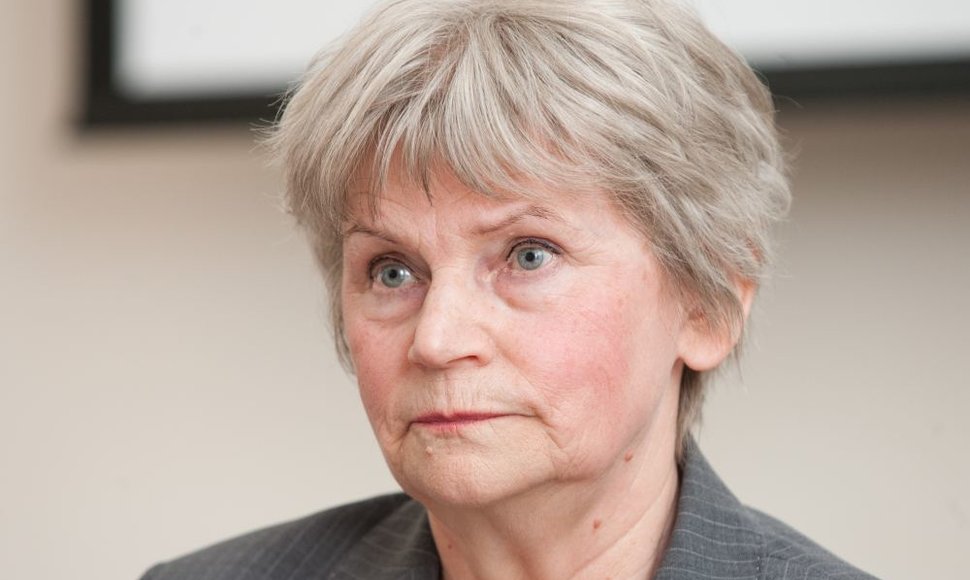The two-year investigation did not find any evidence of involvement of guerrilla leaders who fought against the Soviet occupation. No suspected perpetrators of the Holocaust have survived to this day.
Teresė Birutė Burauskaitė, director of the Genocide and Resistance Research Center, told BNS that the final research was underway, and the statistical data that was established should be published in the end of June.
After verifying names of 4,268 killers of Jews published on an Israeli website, the team of five historians found that 1,034 individuals were involved in the killings.
"Professional historians reviewed the 4,268 listed people, who, according to publishers, could be connected with massacres. The research by our specialists shortlisted them to 1,034 names," Burauskaitė told BNS.
Nearly all who were accused maintain they were the convoy, while others did the killing. However, this is not true because one person cannot physically keep firing for six hours.
"They are the people who held guns. Nearly all who were accused maintain they were the convoy, while others did the killing. However, this is not true because one person cannot physically keep firing for six hours," said the director.
In her words, the basis for formation of the list of suspected Holocaust perpetrators that has been online for a long time is unclear, while some names could not be located in any archives.
Burauskaitė said publishing the list of 1,034 names without a legal opinion would not be fair. Nearly all listed people were on trial during the Soviet era.
"Our research is of historical character. In order to publish the list, we should have a judicial investigation. We cannot perform the function. Lawyers of the independent Lithuania should investigate now. We are determined to have a discussion with the Prosecutor General's Office, maybe it would set up a task force that would examine the data about the 1,034 individuals," Burauskaitė told BNS.
She emphasized that, once the first phase is completed, the investigation would be continued to verify data about police structures. After the work is completed by the end of 2013, the list is expected to double and Lithuania may consider addressing research centers abroad for help.
In Burauskaitė's words, the research has not revealed any evidence that top leaders of Lithuania's guerrilla efforts could have been part in the massacres of Jews.
"There are no names of guerrilla leaders on the list. Absolutely no data of this kind," she said.
In her opinion, many of the listed people could not be involved in the guerrilla fighting, as they were already convicted at the start of the second Soviet occupation.
"There are statements in the Israeli press and the Wiesenthal Center that nearly all Lithuanian guerrillas were involved. There were at least 50,000 guerrillas, and the killings were committed by about 2,000," said the head of the Genocide and Resistance Research Center.
"We are accused of not bringing criminal charges; however, we have nobody to bring them against. We do not have any information about a killer of Jews who would still be living in Lithuania," she told BNS.
The research team involved two specialists of the Genocide and Resistance Research Center and three professional historians.
Massacres of Jews in Lithuania broke out on the first days of the war between the Soviet Union and Nazi Germany in the end of June 1941. Nearly all Jews were driven to ghettos and murdered by mid-November of 1941.
In 1943, the invader administration decided to close down ghettos in the largest cities. About 195,000 Lithuanian Jews were annihilated by the end of the Nazi rule, merely 5-10 percent of Lithuania's Jewish population survived until the end of the war.
The Nazis managed to get a relatively high number of Lithuanian administration institutions and local residents involved in the Holocaust.
The fact can be in part explained by the brutal Soviet occupation, which Western and Central European countries did not suffer. Massacres, deportations and other harm caused by the Soviets made some Lithuanians support Germany at least at the very beginning, hopes of restoring the Lithuanian state were pinned to the Nazi-Soviet war.
Many Jews feared the attack by Nazi Germany and sided with the Soviets, anti-Semitic sentiments and stereotypes gained popularity in the country.
Historian Arūnas Bubnys says that although "final settlement of the Jewish question" was organized and initiated by the Nazis, it would not have been as fast and large-scale without active collaboration of part of the Lithuanian administration and the local population.
"People were at a loss and stressed at the time, which is a very good environment for propaganda. All this transformed into a nightmare and an enormous tragedy for the state. Loss of the Jewish community is a huge loss," Burauskaitė concludes.












